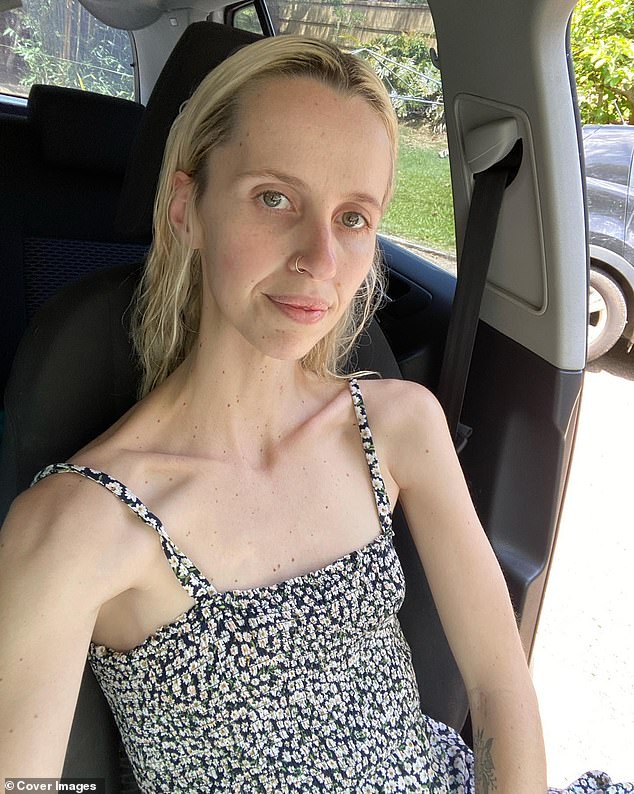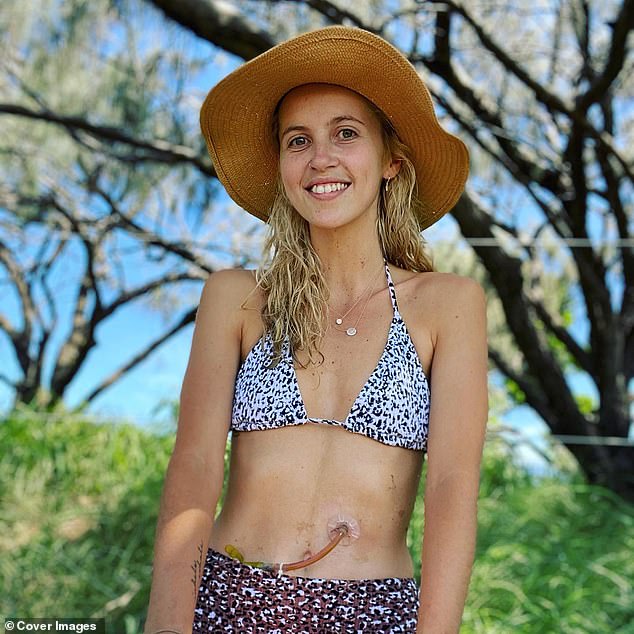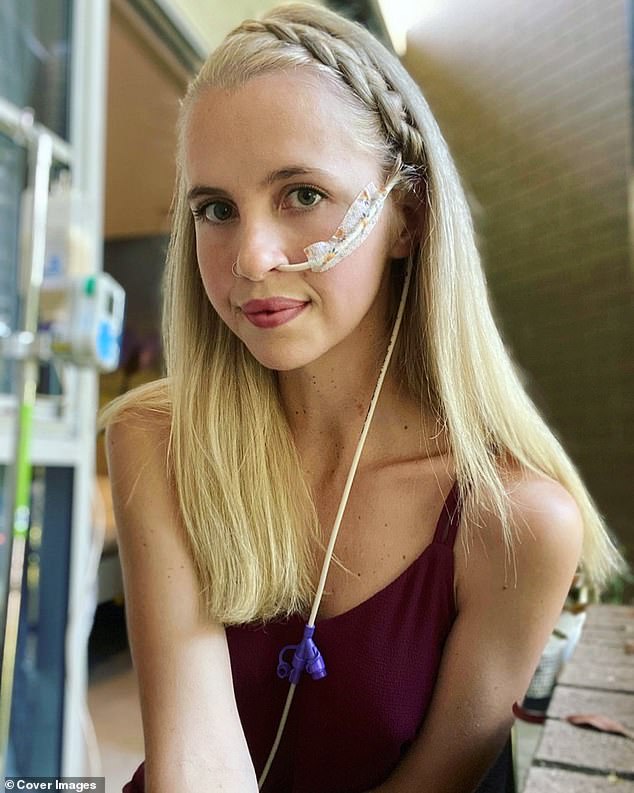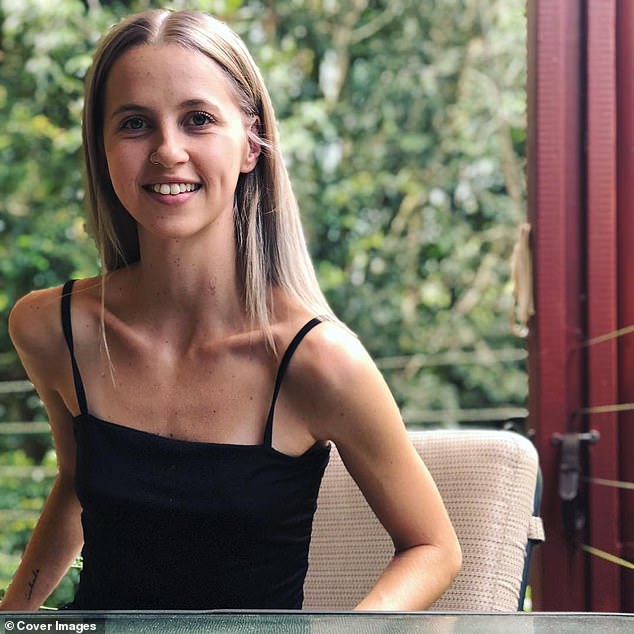I was celebrating my 16th birthday when a friend uttered a remark that plunged me into a crippling 13-year battle with anorexia
An innocent comment about a cheeseburger led to a young woman’s grueling 13-year battle with anorexia.
Monique Castaldi-Vesper, from Queensland, is one of an estimated million people in Australia currently suffering from an eating disorder; she is 29 and has been battling the disease since her 16th birthday.
She was enjoying a cheeseburger for lunch that day, like most teenagers, when a friend remarked, “I wish I could eat like you and not care about my appearance.”
Until that moment, Monique hadn’t given much thought to her diet or physique. But that one comment sparked a change in her mindset, creating a dangerous obsession with “health.”
She started questioning everything she ate, counting calories and weighing herself daily. Fast forward, and Monique is still undergoing treatment for an unrelenting eating disorder.
Monique Castaldi-Vesper (pictured before her 16th birthday), from Queensland, is one of an estimated million people in Australia currently suffering from an eating disorder

She started questioning everything she ate, counting calories and weighing herself daily. Fast forward, and Monique is still undergoing treatment for an unrelenting eating disorder
‘Anorexia impacts every second of my life. I live with a monster in my head,” Monique said.
“It isolates you; everyone else in your life is moving forward while you are stuck in a war that only you can see. Physically it affects my energy, concentration and focus. I feel constantly unwell and beyond exhausted.’
Monique, who sought treatment at the age of 22, said her support system of a psychologist, psychiatrist, dietitian and GP has become invaluable in her journey to recovery.
‘The biggest misconceptions about anorexia are that it is a choice, and not a serious or real disease; that it’s all about weight, and only about attention. “I didn’t know what eating disorders were when I first developed them, I just thought I was getting healthier,” she said.
‘With the help of my support system, I understand this disease better. I learned that the more you control your food, the more control you have over the disease.
‘Focus on diet and weight is not the actual disease, but rather a symptom of it. Eating disorders are a way to lose a sense of control, numb emotions, give you something to focus on and escape from reality.”

Monique (pictured today), like most teenagers, was enjoying a cheeseburger for lunch that day when a friend commented, “I wish I could eat like you and not care about my appearance.”

Monique had not thought much about her diet or physique beforehand (photo in her early teens)
In a society where body image is always at the forefront, Monique believes that while the body positivity movement is a step in the right direction, there is still much more to be done.
‘The movement challenges toxic diet culture and promotes acceptance of all body types. However, the media plays a dual role: while it can uplift, it can also perpetuate harmful beauty ideals,” she says.
‘It is crucial to shed light on eating disorders as mental health issues, focusing less on weight and more on internal issues.’
To try to change the mentality, Monique instructed her Instagram to help others with eating disorders, and to provide helpful tips to family, friends and loved ones of those who suffer.

‘Anorexia impacts every second of my life. I live with a monster in my head,” said Monique (photo 2022)

Monique, who sought treatment at the age of 22, said her support system of a psychologist, psychiatrist, dietitian and GP has become invaluable in her journey to recovery.
Her goal is to emphasize that eating disorders are a mental illness, not a fad or fad, and that weight is a symptom, not the cause.
‘It’s not about vanity, it’s about control. An eating disorder may provide the illusion of control, but in reality it robs individuals of their real power and autonomy,” she said, adding that every journey is unique.
‘The inner struggle is also constant. This isn’t just a critic in your head; it’s a constant war of emotions and thoughts, all day, every day,” she added.
‘They are not to blame, no one would ever willingly choose such a path. It is crucial to understand that it is not a voluntary condition.”

Her goal is to emphasize that eating disorders are a mental illness, not a fad or fad, and that weight is a symptom, not the cause.

“Recovery means following your plan, no matter how loud your mind gets. Because every time you push back, you show that you can do it,” she said (photo April 2023)
Monique agrees that recovery is and will never be ‘a straight path’. Some days are harder than others, but every day represents a new step forward.
‘Recovery is difficult, but it is a process that will lead to you getting your life back. “For me, recovery means feeling your emotions, listening to your body, slowing down, eating even when you don’t feel like it, and being honest with yourself and your support system,” she said.
‘It’s also about setting boundaries and not acting on the thoughts. The more you fight the eating disorder, the louder it becomes because it doesn’t want you to get out of its grasp.
“Recovery means following your plan, no matter how loud your mind gets. Because every time you push back, you show that you can do it.”
If you need help or support with an eating disorder or body image issue, please call Butterfly’s National Helpline on 1800 334 673 or email support@butterfly.org.au
